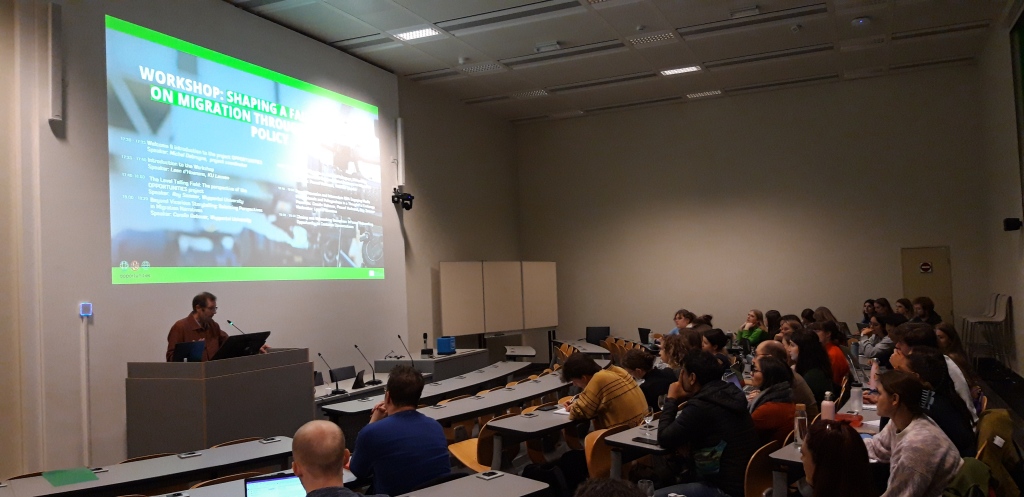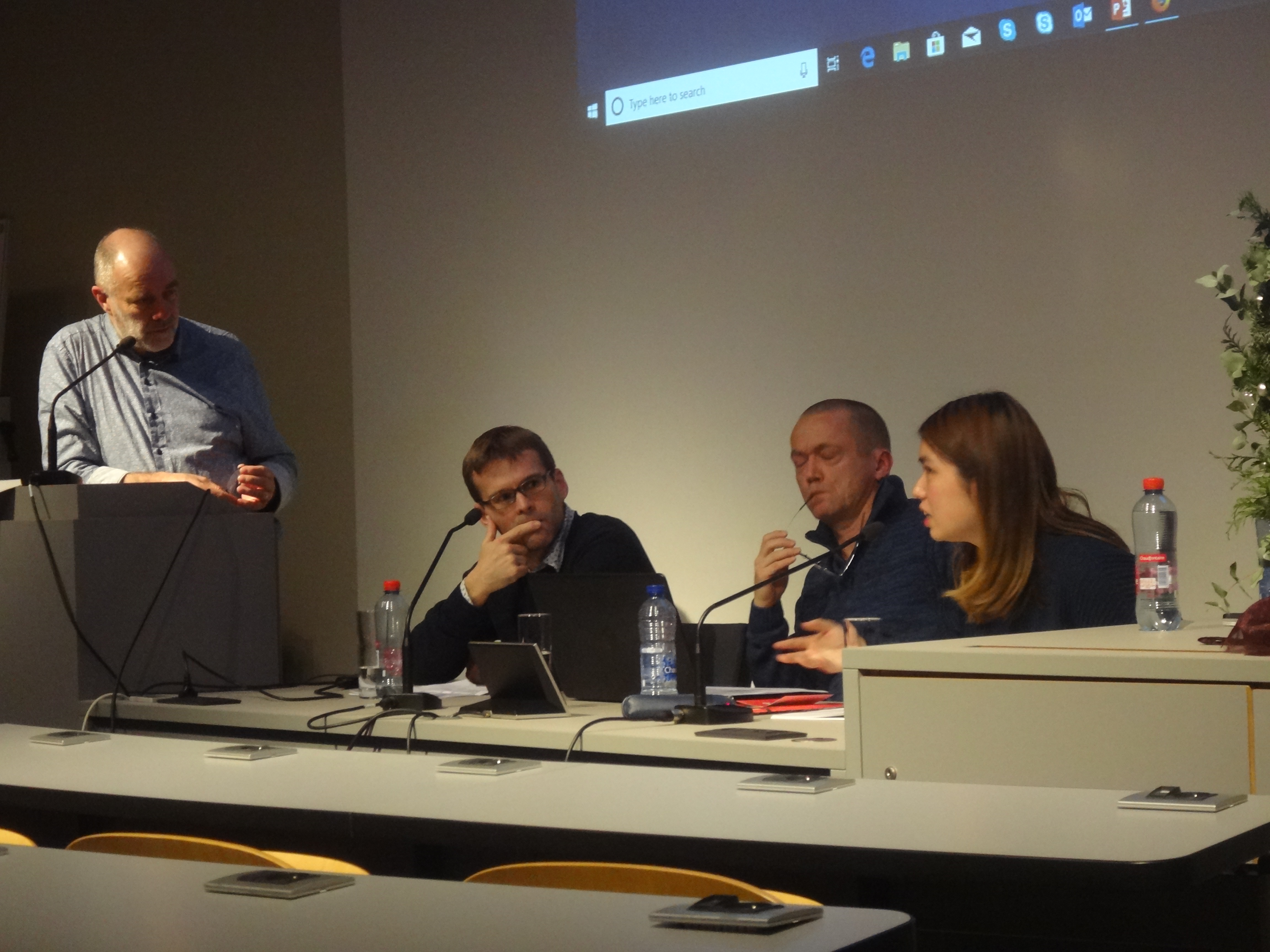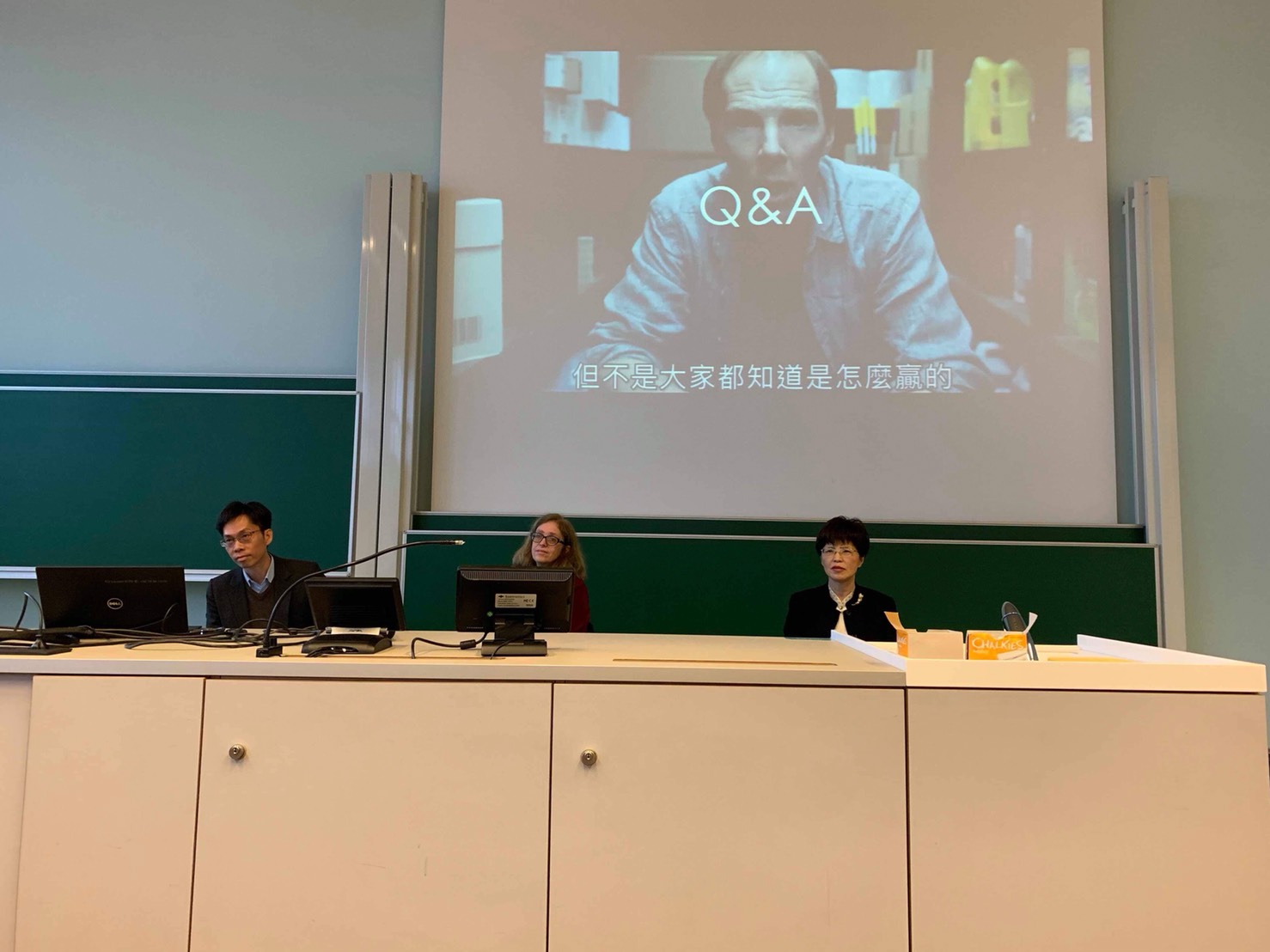In collaboration with BCCDS (Brussels Center for Chinese Discourse Studies), BCJS organised a roundtable with a focus on the variation potential of meaning in the interpretation process at large settings, such as international press conferences. The roundtable on the 30th of November 2023 was preceded by a keynote speech by prof. Rui Zhang (Dalian Univ. of Technology, Dalian, PRC), who showed the audience several examples of the various processes operating in the changes of meaning in the specific context of the international press conferences given by the Chinese Premier at the end of the annual Two Sessions. Information was given on the rationale of the institutionalization of the press conferences and what happens prior to the conferences (in the backstage) and who features in the front stage of these high-level political events.

During the roundtable, led by BCJS member Lut Lams, more background about the reasons for these press conferences was provided by the other panelists of the roundtable, prof. Bettina Mottura (Univ. of Milan) and Prof. Emma Lupano (Univ. of Cagliari). The audience learned about the way China has been keen on ‘telling the China stories well’ and how these stories find their way to the international communities, through translations and international correspondents. Special attention was given to how some key phrases in the Chinese political language get transformed to make better sense to foreign audiences, in particular to the Italian readership or viewers/listeners to Italian news media. The keynote speech and roundtable discussion was interpreted simultaneously by our faculty’s students of interpretation, for whom the event did not only offer a good opportunity to practise but was also highly relevant in showing the power of mediated language.















